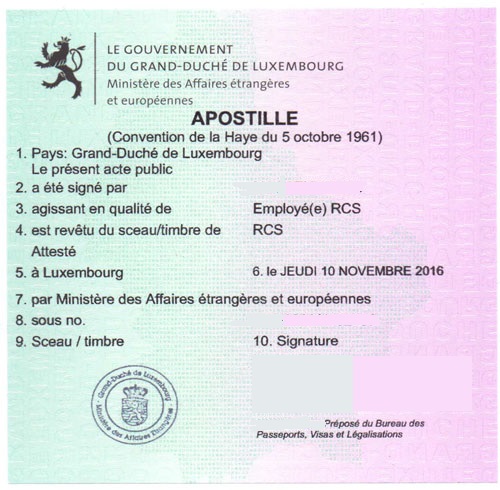Legalisation, notarisation, apostille
Legalisation, notarisation, apostille

Your translation is ready and we have done the swearing by adding our stamp, date and signature. This is a sworn translation. In some cases, for a private or public document for administrative use in a foreign country, a second step is required.
Legalisation by the Hague Apostille
"Apostille de la Haye". Some countries request further authentications in order to accepted a document. Over a hundred countries signed the Hague Apostille Convention of 5 October 1961 to simplify the legalisation procedure. We can arrange for an apostille stamp to be affixed to your translation in order to certify the veracity of the translator’s signature on public documents. Count 2 days for this service.
Legalisation by a notary, called notarisation
Notarisation is another form of legalisation that might be asked for by foreign administrations. Should you require this service, our notary will stamp our sworn translation, stating the date and mention that the translator’s signature is authentic. Both procedures serving the same purpose, it is up to you to check with your client or the receiving office or administration what kind of legalisation is preferred. We deliver the sworn translation with the Hague Apostille or the notary’s mention and signature, together with the source text. Should you wish to have the latter stamped and signed, we also provide this service.





